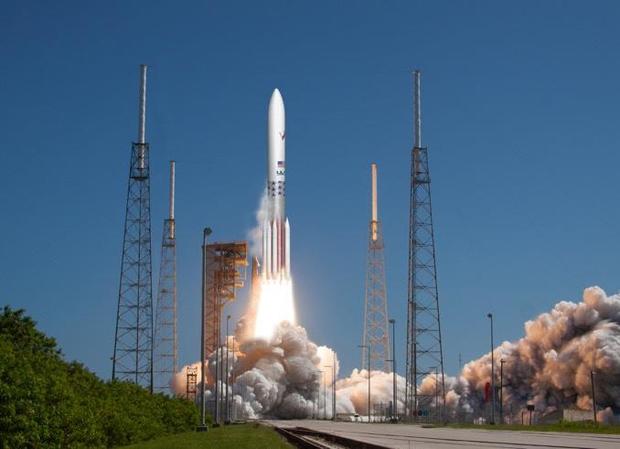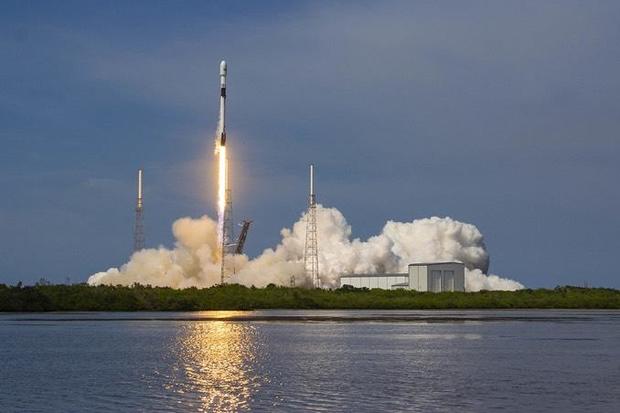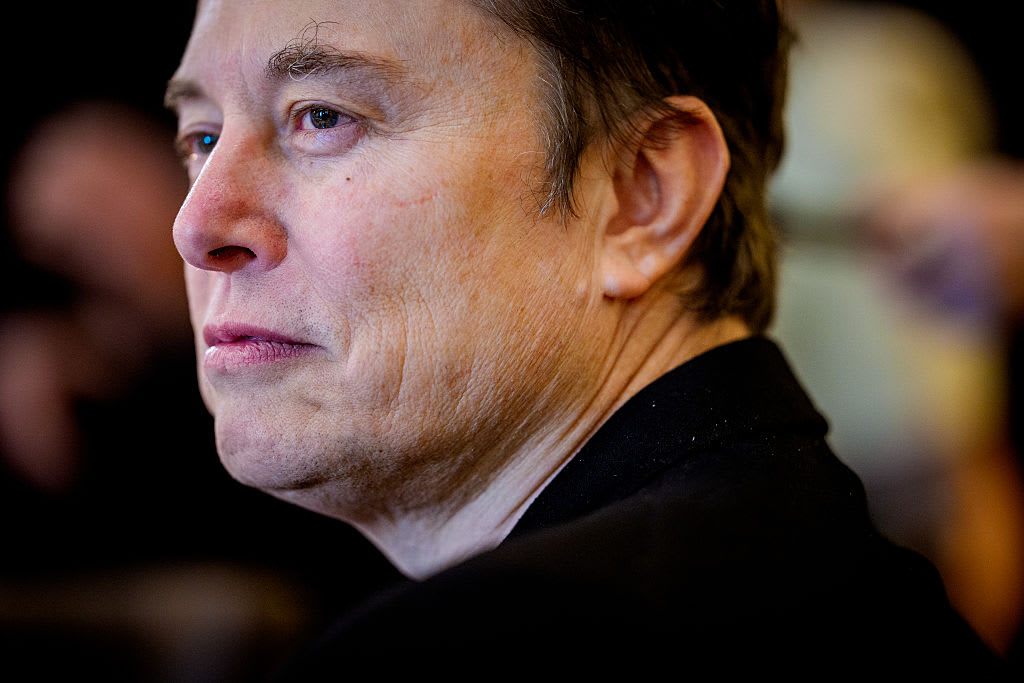SpaceX, United Launch Alliance win major Pentagon launch contracts
United Launch Alliance, builder of Atlas 5, Delta 4 and new Vulcan rockets, and SpaceX, builder of Falcon 9 and Falcon Heavy boosters, won lucrative long-term Pentagon contracts Friday for high-priority national security launches through 2026, beating out Northrop Grumman and Jeff Bezos' Blue Origin.
The Pentagon estimates it could require more than 30 launches between 2022 and 2026, 60% of them going to ULA and 40% to SpaceX.
ULA was awarded an initial $337 million contract for two classified United States Space Force missions in 2022 — USSF 51 and 106 — while SpaceX won $316 million for a single classified mission, USSF 67, also in 2022.
"We're very excited within the Space Force to provide a launch capability to the entire department that is dependable and reliable, and we look forward to building on the perfect 81 out of 81 mission success that the Air Force and now Space Force has provided over the past years," said William Roper, assistant secretary of the Air Force for Acquisition, Technology and Logistics.
The firm fixed-price, indefinite delivery Phase Two contracts under the Pentagon's National Security Space Launch Services initiative are aimed at securing reliable, flexible and lower-cost access to space while ending the nation's reliance on the Russian RD-180 engine used in ULA's workhorse Atlas 5 rocket.
During an afternoon Zoom briefing from the Pentagon, Roper said he could not discuss anything about the nature of the classified payloads that will be launched in the first three missions or which rockets will carry them.
ULA is building a powerful, partially reusable new rocket, the Vulcan Centaur, that eventually will replace the company's Atlas 5 and Delta 4 boosters. The new rocket features Blue Origin's high-power BE-4 methane-oxygen engine in its first stage and a hydrogen-burning Aerojet Rocketdyne Centaur upper stage engine.
"ULA is honored to be selected as one of two launch providers in this procurement," ULA President Tory Bruno said in a statement. "Vulcan Centaur provides higher performance and greater affordability while continuing to deliver our unmatched reliability and orbital precision ... well into the future."
The Pentagon is prevented by law from using Atlas 5 rockets past 2022 that are equipped with Russian engines purchased after those already under contract. But 12 of the final 18 RD-180 engines available for use by the DOD remain available for use after 2022 if needed.
"We do have 12 engines that are available should we need to use those engines beyond the '22 mark," Roper said. "We're allowed to use them, we're just not allowed to purchase more."
ULA most recently launched NASA's $2.4 billion Perseverance Mars rover atop an Atlas 5 on July 30.
SpaceX will use its Falcon family of rockets equipped with company-designed Merlin engines, nine in the booster's first stage — 27 in the triple-core Falcon Heavy — and one vacuum-rated engine in its second stage.
Roper said he could not discuss whether SpaceX proposed using technology being developed for the company's planned heavy-lift Starship rocket. SpaceX had no immediate comment on the contract award.
The award capped a remarkable week for the California rocket builder. On Sunday, a SpaceX Crew Dragon capsule making the first piloted American flight to orbit since the space shuttle was retired in 2011 safely brought two NASA astronauts back to Earth after a 64-day test flight.
Two days later, SpaceX successfully launched a prototype of its planned Starship rocket on an up-and-down test flight from the company's Boca Chica, Texas, test facility. And earlier Friday, a SpaceX Falcon 9 rocket launched 57 Starlink satellites and two remote sensing microsats into orbit from the Kennedy Space Center.
The new contracts evolved from a series of initiatives dating back to 1994 when the Pentagon announced plans to build an Evolved Expendable Launch Vehicle, or EELV, to carry high-priority national security payloads to orbit. At the time, the Air Force was relying on a limited number of Titan 4 rockets, the only heavy-lift U.S. boosters available in the aftermath of the 1986 Challenger disaster.
Lockheed Martin, builder of the Atlas family of rockets, and McDonnell Douglas (now Boeing), builder of the Delta, initially competed for EELV contracts but ultimately joined forces and created United Launch Alliance in 2006, offering rockets to both the Pentagon and commercial users.
ULA was the sole source of heavy-lift rockets certified for military use until the arrival of upstart SpaceX.
Company founder Elon Musk complained that SpaceX should have been allowed to bid on a sole-source "block buy" military launch contract and that the Atlas 5's use of RD-180 engines posed a security risk as tensions between the United States and Russia escalated in the wake of Russia's annexation of Crimea.
SpaceX ultimately won Pentagon certification for military launches. Then, in October 2018, ULA, Northrop Grumman and Blue Origin shared $2.3 billion in contracts to continue development of the Vulcan Centaur, Northrop's OmegA booster and Blue Origin's New Glenn.
The Pentagon then announced it would award "Phase Two" contracts in 2020, selecting two providers for launch services through 2026. SpaceX, left out of the 2018 contracts, was free to bid in Phase Two.
"We don't think this is the last round of innovation that we're going to see," Roper said. "And though we're excited for the next five years of Phase Two, we're looking ahead to Phase Three, five years from now, and are just wondering what new leap ahead lower cost technologies might be on the forefront, to make assured access to space not just assured, but cheaper."





